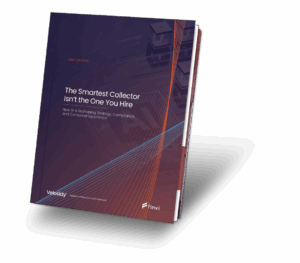Blog & Insights
Cloud Repatriation: Why It’s Not the Trend You Think It Is

In recent years, headlines about “cloud repatriation” have reignited doubts about cloud adoption. There are some organizations moving workloads back on premises, prompting speculation about a broader reversal in cloud strategy. But is this shift truly a trend or just noise?
Understanding Repatriation
Cloud repatriation refers to the migration of workloads from public cloud platforms back to on-premise environments. At first glance, this might seem like a retreat from cloud computing. However, the reality is far more nuanced.
According to Gartner’s 2024 study, fewer than 8% of repatriation cases cited security as the primary driver. Instead, most decisions were based on cost optimization, latency requirements, or specialized performance needs — particularly in hyperscale environments like those operated by Netflix or Dropbox. These companies have the resources and technical depth to build and maintain highly customized infrastructure, making repatriation a viable option for specific use cases.
The Exception, Not the Rule
Repatriation is rare and typically applies to organizations with:
- Massive in-house DevOps teams
- Specialized workloads (e.g., video rendering, real-time analytics)
- Unique performance or latency requirements
For the vast majority of mid-market and regulated enterprises, cloud remains the more secure, scalable, and cost-effective solution. These organizations benefit from centralized updates, elastic infrastructure, and built-in compliance frameworks that are difficult and expensive to replicate in house.
Moreover, most repatriation stories are not full reversals. They often involve hybrid strategies, where specific workloads are moved on premises while the organization continues to rely on cloud platforms for other critical operations. This hybrid approach reflects a desire for optimization, not abandonment.
Security Isn’t the Problem — It’s the Benchmark
Public cloud platforms like Oracle® Cloud Infrastructure (OCI) meet rigorous compliance standards, including FedRAMP, HIPAA, PCI DSS, and SOC 2. Repatriating workloads means recreating these controls from scratch — an expensive and complex endeavor that often introduces more risk than it resolves.
Cloud-native platforms also offer advantages that are difficult to match in decentralized environments: continuous monitoring, automated patching, centralized governance, and rapid scalability. These capabilities are essential for agencies and enterprises that must maintain high levels of security and compliance without sacrificing agility.
Velosidy’s Advantage
Velosidy is purpose-built for agencies that need:
- Regulatory alignment
- Predictable costs
- Continuous updates
- Integrated payments and communication tools
Its architecture, built on Oracle Cloud Infrastructure (OCI), delivers enterprise-grade security and compliance without the overhead of managing infrastructure. Agencies can scale confidently, knowing their platform is secure, auditable, and future-ready.
Conclusion: Validate, Don’t Retreat
Repatriation doesn’t reduce risk, it reintroduces complexity. The smarter move is validation, not retreat.
Agencies should ask tough questions, demand transparency, and choose platforms that meet their needs today and tomorrow. For most, that path leads forward, not back.
Learn More
Download this free whitepaper, The Cloud Isn’t the Risk, It’s the Remedy: Understanding Cloud Architecture and Its Relationship to Modern Collections Technology.
Disclaimer: Finvi is a technology company and provides this post solely for general informational and marketing purposes. You should not rely on the content of this material for any other purpose or as specific guidance for your company. Finvi’s advice, services, tools, and products described herein do not guarantee compliance with any law or industry standard. You are ultimately responsible for your own company’s actions and compliance efforts. Because everyone’s situation is different, you must consult your own attorneys, accountants, and/or other advisors to obtain specific advice on your company’s compliance, legal, tax, regulatory and/or other business needs. Despite Finvi’s efforts to provide current and up-to-date information, you need to recognize that the information contained herein may become outdated quickly and may contain errors and/or other inaccuracies.
Oracle, Java, MySQL, and NetSuite are registered trademarks of Oracle and/or its affiliates.

